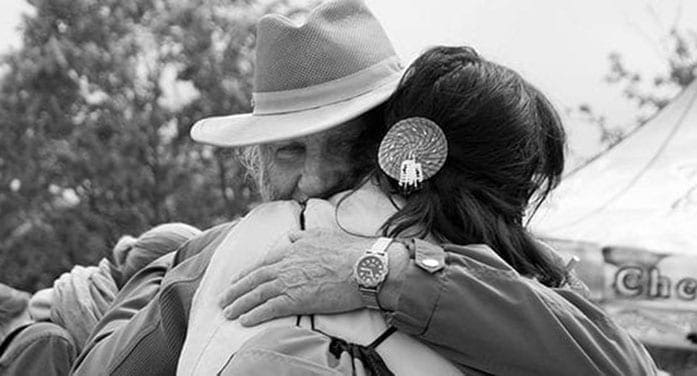 It’s a normal human reaction not only to acknowledge when we’ve done something wrong but to seek to make reparations and heal the relationship with the person we’ve harmed. This is also true on a societal level.
It’s a normal human reaction not only to acknowledge when we’ve done something wrong but to seek to make reparations and heal the relationship with the person we’ve harmed. This is also true on a societal level.
As I complete teaching my unit on the residential school system in Canada, I ask students to reflect on what they’ve learned. The overwhelming response is to express a desire for reparation. These young people weren’t even alive when the last of these schools closed, yet they understand the damage racist policies have wrought on their country and sincerely want to make things right.
As a person of German heritage – where thousands of descendants of those involved in the Holocaust sponsor the placement of Stolpersteine, small plaques in the sidewalk to mark where their Jewish neighbours once lived – I understand their sentiment. They know they can’t do anything to change the actions of their grandparents, but they can build a better and more just society. And they have.
There are, unfortunately, exceptions to this rule. For example, what can be said about how most German citizens have dealt with the Holocaust can’t be said of many German corporations.
There always seem to be individuals who go against their innate human nature and choose not to make reparations, as well as those who tell lies to try to hide their crimes against humanity. Though it’s not normal, we see people who practise these dysfunctional behaviours marching in the public forum with great regularity.
 A curious case is that of former British prime minister David Cameron. He was born into privilege and graduated from some of England’s finest schools. Cameron surely would have studied the slave trade; he would have been aware that the life expectancy of an enslaved human on a Caribbean plantation was only three years.
A curious case is that of former British prime minister David Cameron. He was born into privilege and graduated from some of England’s finest schools. Cameron surely would have studied the slave trade; he would have been aware that the life expectancy of an enslaved human on a Caribbean plantation was only three years.
As the leader of Great Britain, he would have known that, when slavery was abolished, the British government consecrated 40 percent of its treasury to compensate the cruel and vicious slave owners rather than the people whose forced labour had generated so much wealth for the Empire.
And surely Cameron would have known that he was indirectly related to one of these slave owners and that his wife Samantha was a direct descendant of another. Their opulent lifestyle is, quite literally, built on the backs of generations of slave labour.
Yet when Cameron visited Jamaica in 2015, and the topic of reparations was brought up by the descendants of those who were brutally tortured by his ancestors, he said, “I do hope that, as friends who have gone through so much together since those darkest of times, we can move on from this painful legacy and continue to build for the future.”
Cameron and other elites must be aware of the harm their ancestors have done, yet they show no interest in making the reparations needed to actually build a better future. Their behaviour certainly seems abnormal, and the consequences of their actions could have dire consequences for the well-being of humanity.
They stand in stark contrast to the ordinary citizens of Canada, Germany and every other country striving to leave a legacy of a better world, one that their descendants will be proud of.
What can be said of those who not only knowingly deny the past but even today ignore the inherent human rights of their neighbours in a quest for obscene profit?
They’re the slave traders of the modern economy, and their descendants will have to live with that legacy.
Striving to build a global community where every person has infinite value isn’t special or exceptional; it’s what humans were designed to do. Those who don’t do so are displaying dysfunctional behaviour, and we need to be mindful of this truth.
Gerry Chidiac is an award-winning high school teacher specializing in languages, genocide studies and works with at-risk students. For interview requests, click here.
The views, opinions and positions expressed by columnists and contributors are the authors’ alone. They do not inherently or expressly reflect the views, opinions and/or positions of our publication.
© Troy Media
Troy Media is an editorial content provider to media outlets and its own hosted community news outlets across Canada.



Indifference is a form of schadenfreude! We need to look at ways to build better relationships with our neighbours. Thank you for your ideas, Gerry!